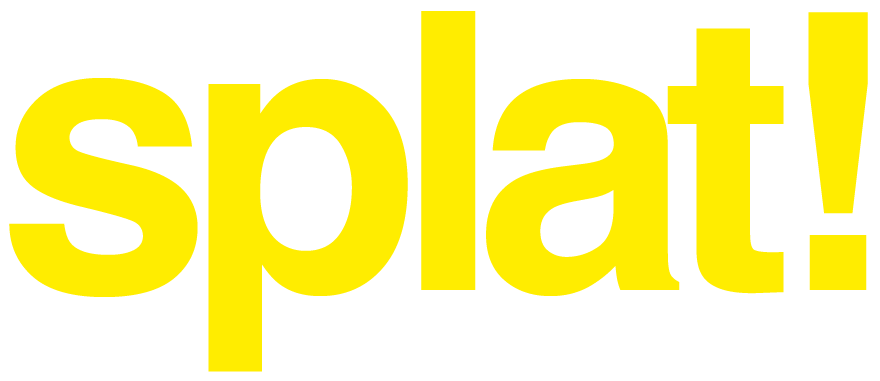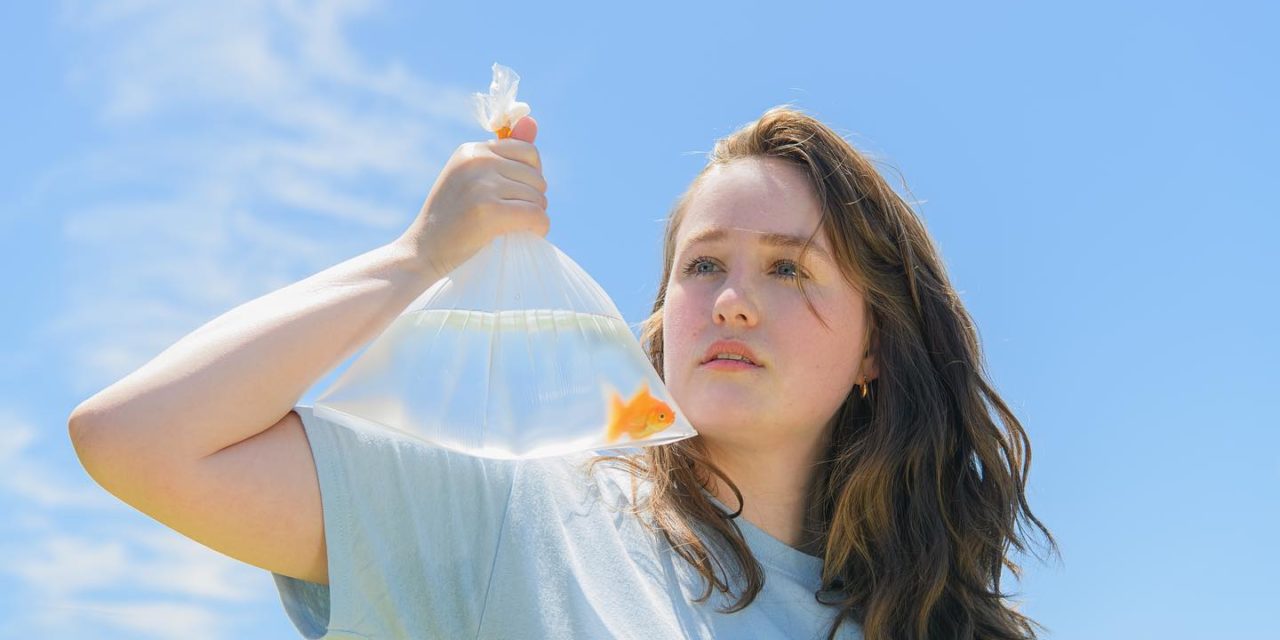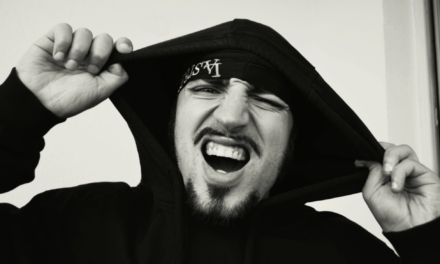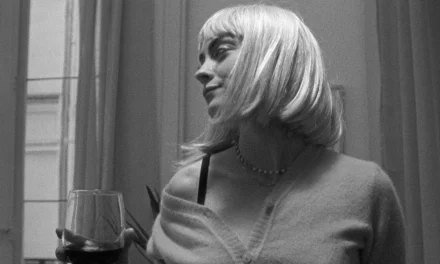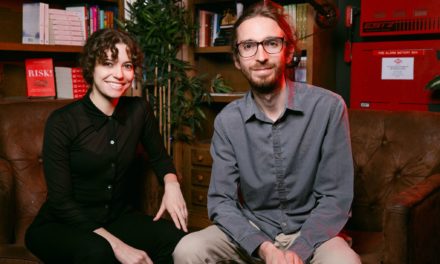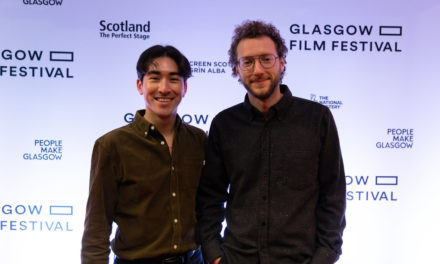A thunderous, axis-spinning sound rattles through the thin comedy tent walls as low-flying planes, for some reason, pass overhead. Grace Jarvis stops her set momentarily and quips “I’ve been told if a war breaks out I don’t get my deposit back”. She continues on like a consummate professional, unfazed. The velocity-based intrusion has somewhat rattled me on the other hand. I try to stay focused on her set as my heart races, trying to dispel my impulse to check my phone to see if something has gone globally array yet again.
Grace Jarvis would not be the worst stand-up to die via an airstrike while seeing, and I mean that as a compliment. There is a genuine joy and revelry exuding from her on stage. Jarvis’s informal musings bring you into her world very quickly, a comfortable place that feels genuine yet never saccharine, naïvety played by a pro. She achieves this through really great narrative and joke construction that can hop, skip and jump from sincere to absurd to thoughtful to downright gross at a moment’s notice.
Her excellently titled show ‘This Is The Last Goldfish That I Am Going To Eat For You’ is about her autism diagnosis in adulthood and how it has shone new light onto a lot of her experiences in youth. But it’s not just about that it’s about a lot of things, it’s about being queer in an all-girls religious school in rural Australia, it’s about her relationship with her ex-military pilot father, it’s about the 2019 Netflix film ‘Tall Girl’.
After two back-to-back sell-out shows the Melbourne-based comedian took some time out of her hectic jet-lagged Fringe odyssey to chat with me. We met after her show on a bustling street next to George Square as people rotationally joined the communal bench we sat at to eat and chat amongst themselves. We discussed the structure of her show, how her mental coping mechanisms have informed her self-perception and if my momentary fly-by panic was justified.
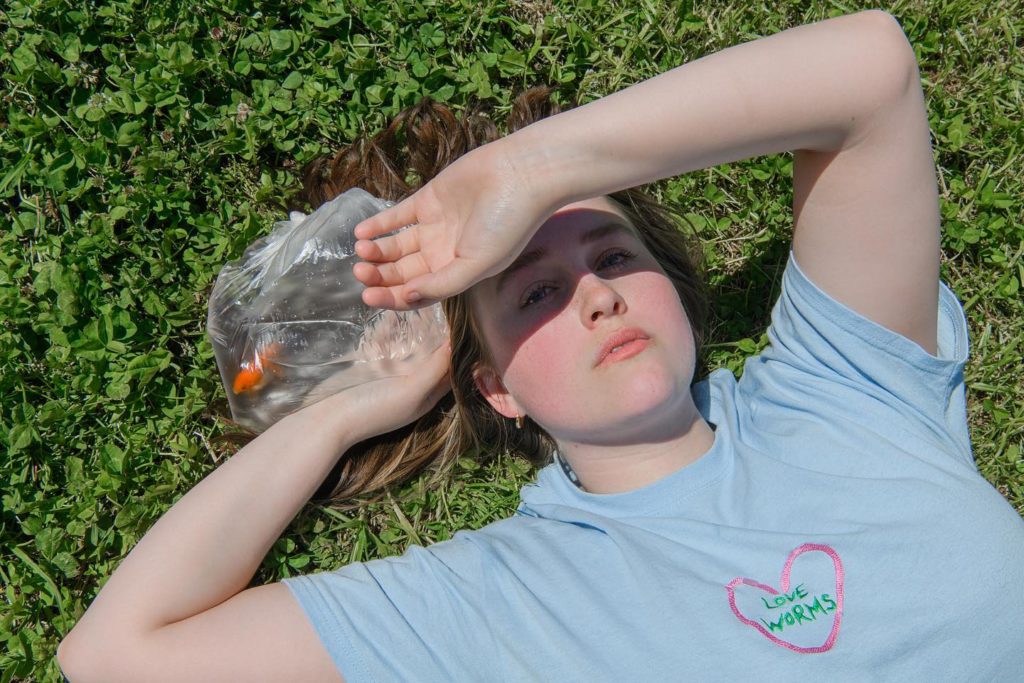
How’s your fringe going?
Yeah great, I love it. It’s really fun.
Have you done it before?
No, it’s my first year. But I’m a comedy nerd at heart. My show is going great, which is awesome, but I get to see so many shows!
Who have you been enjoying?
I don’t think I’ve seen anyone I haven’t enjoyed! Paddy Young was really funny. I saw my director’s show again, Laura Davis. Christopher Macathur-Boyd. Shelf, have you seen them before? They’re like a duo is such an interesting style, they’re really good. So much great stuff!
Your show is very personal but then at the same time speaks to a wider topic of how autism is perceived generally. Are you conscious of having to navigate that?
I try not to make generalisations because I only have my experience and I’m not an expert and I’m recently diagnosed. And I think the whole point of it is [that] the problem with the history of autism diagnosis is it’s only [been] seen as one specific thing for so long, so many people got missed. I don’t say it but I hope that the audience can grasp [that] I felt completely isolated and alone for so long and was so embarrassed and ashamed of what are autistic coping mechanisms, like stimming and stuff. And people weren’t being malicious when they said not to do them, they look like distress to other people but they are, for me at least, [ways of] trying to avoid distress. And I was aware of people noticing me doing those things so I felt like I couldn’t do [them]. So I lived life on the point of meltdown until I started self-harming. When people hear that autistic people self-harm they think that it’s a symptom of autism, it’s not; it’s a symptom of how we treat autistic people. So I think that there’s stuff I don’t spell out but I hope some of that trickles through.
You talk a bit at the end of the show that specifically as a woman you’re less likely to get diagnosed earlier in life because…. I don’t really know why
It’s because it just looks different in girls and boys and often special interests and obsessive behaviours are on to things that are socially acceptable for young women to be obsessed with. My parents were just like ‘She’s so smart’, and that’s true but I burnt myself out socially because of all of the ways living in the world makes me feel overwhelmed. Like being smart doesn’t save you from anything, if anything it makes people expect more from you and [for] myself to expect more of me. And that just lead to me completely hitting the floor eventually. Which, I think, is part of the reason why I bring up the fact that people are like ‘Why do we have to diagnose everyone?’, and it’s because if you have a word for it you have an understanding of what kind of support people need.
When you were younger it probably would have helped if you had an explanation.
Totally, when someone gave me the word, I was like ‘ooh well if that’s all that it is then I can deal with it’. I felt so embarrassed about having these experiences of the world, these needs and I was just like ‘I guess I’m just a difficult person’, and then somebody was like ‘No you’re not a difficult person, you’re autistic’.
“Being smart doesn’t save you from anything, if anything it makes people expect more from you and [for] myself to expect more of me. And that just lead to me completely hitting the floor eventually. “
-Grace jarvis
In the show, you also talk about coming to terms with your identity through your sexuality. Were those two things you were figuring out at the same time?
Actually, that’s true, I came out when I was 21 but I got diagnosed midway through the big lockdown when I was 22, so pretty soon after each other. But I think I’d always known I was queer I just didn’t really want to be. I was like I wish this wasn’t happening until I told people and it was fine.
I think going to a puritanical school doesn’t help.
Most homophobic town in the nation, truly. We have stats on that because we had a vote on whether or not to legalise gay marriage and Toowoomba voted ‘no’ at the highest population of anywhere. So my fears were real.
I’m just interested in that in terms of the way you structure the writing of the show. They sort of narratively parallel each other.
I think that my experience of figuring them out and being told them [was] very similar. In my life, they were two things that made people treat me a certain way. Some of the time I couldn’t tell which one they were mad about. I know you don’t like me and I don’t know why and sometimes you’re calling me a dyke and sometimes you’re calling me a weirdo, so it could be either. It’s definitely more about how other people perceive me. I think there’s something about how people are afraid of labelling. It’s not good if your label is your identity, I don’t think that’s useful at all. But if it’s just a thing that you can say instead of having to go through a whole thing of explaining yourself and [saying] this is why I’m not eating this or this is why I need to go and lie down in a quiet room or this is why I’m this way. If you just have a word for the label you can just say that word, and people have an understanding. People don’t have a great understanding of autism, especially in women, but I was doing gigs for people and they were weird about it, I say it in the show, they were like ‘Well, you don’t seem like my nine-year-old nephew’. I think it’s hard to explain to people that I am masking when I’m on stage. It feels obvious to me that I’m standing here for an hour with a microphone, of course I’m putting on my face. And the face is me, it is the mask that I’ve been putting on since I was a little kid but its still hard work and takes effort and isn’t how I am all of the time and couldn’t be sustained, which is why I ended up having so many breakdowns.
And one last question, did you think we were going to die when you heard those planes?
No, but I’m not sure what they are. They were so loud! Is it like part of the military tattoo? Because they fly low they sound air-showy. And I’m a pilot’s daughter so I hear the noise and I’m like ‘Oh no, could be happening’.
Grace Jarvis’s show ‘This Is The Last Goldfish That I Am Going To Eat For You’ is playing at ‘The Wee Coo’ @ The Underbelly, George Square until 28th August.
